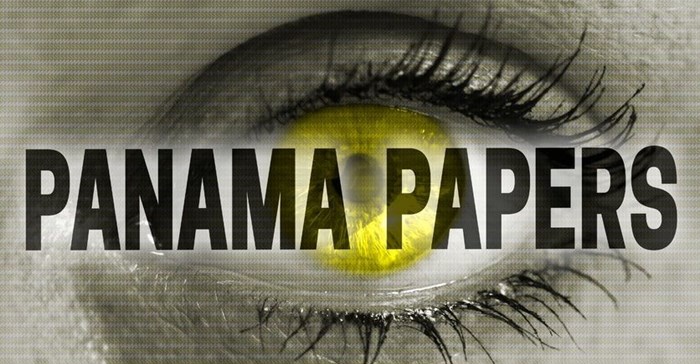
Top stories






LifestyleWhen to stop Googling and call the vet: Expert advice on pet allergies from dotsure.co.za
dotsure.co.za 2 days
More news

















Comparing the Panama Papers to a key which was needed to unlock scandals of today and tomorrow the Global Witness, international transparency campaigners, commented after the announcement of the news: “We already know or suspect what scandals are out there. But, often we lack critical information to connect the dots, prove a case and use that proof to hold powerful actors accountable for their actions.”
The once influential law firm finally succumbs because of deep wounds inflicted by “reputational damage” which hit directly at the bottom line. This follows one of the biggest leaks in history, known to the world through investigative reporters. However, what is not known to most is that the whistle-blower was an unknown source. The unknown, digital age source, used complex technological and untraceable methods including shipping of documents, in some instances, to leak information to one reporter who later brought in other investigative journalists to work on the story.
Once the entire data was received the Washington DC-based International Consortium of Investigative Journalists (ICIJ), then conducted a “second leak”, sharing the information with 400 journalists to analyse it secretly – something extremely unusual in the news industry. When the story broke, it was carried by over hundred news outlets and investigative reporters across the world. It was the biggest tax evasion scandal revealing how the rich used offshore companies to stash their assets. For the participating reporters, it was not just the rush for a scoop, or reckless hacking to publish personal information. It was for “public interest for their countries”.
This trend is described by some technology analysts as the “era of megaleaks.” Eric Schmidt and Jared Cohen former senior Google executives, call the anonymous online sources the “new stringers” who deal “exclusively with digital content and online sources… and taking advantage of rising global connectivity to find, engage and extract the information they know only online. They are connecting journalists with sources as stringer do today.”
According to Wired, a technology publication, the whistle-blower mega leaks are taking place at a scale the world has never seen before, involving terabytes of data. For example, In the case of the Panama Papers, described as “history’s biggest leak” the data involved included 4.8 million emails, 3 million database files, 11.5 million documents and 2.1 million PDFs.
Given the scale of the leaks, the consequences were fatal for the reputations of the political and business leaders, corporations and high-profile individuals involved.
The implications of this action have completely reshaped the perceptions on how ordinary citizens can hold powerful institutions and leaders to account. The age of technology is upon us and it is assisting more citizen to do just that.
With the democratisation of technology and access to big data as many populations come online, technology is breeding new crises for the most powerful corporations and institutions. Misbehaviour is being exposed by digital activists – technology savvy citizens, small groups of activists and aggrieved citizens. These expert whistle-blowers use their expertise to expose the ills of our democratic systems, sometimes, driven by a deep sense of social responsibility and justice.
Data encryption and anonymity tools are plenty and easy to use. Furthermore, big data can be transferred securely, stored in smaller hardware and moved around using anonymous uploads. This is bad news for any corporation or institution trying to hide bad news.
Technology, when used responsibly, empowers the citizens to gain massive social influence. Given that organisations often leave a “paper trail” technology enables citizens to privately collect, analyse and authenticate data enabling them to uncover uncomfortable truths that might have been hidden or unknown to the public.
Citizens have many platforms to use including traditional media outlets, or investigative reporters or using online media. Modern online users are always ready to take action – once information provided is credible and tested. In that way, ordinary citizens are able to take down major corporates and organisations. Organisations who break social contracts, operate in secrecy or behave in an unacceptable manner are in danger.
This is the role that was for many years the preserve of the mainstream and citizen journalists, investigative journalists, pressure groups, industry associates and regulators. All nations, corporates, institutions and governments should be on high alert. Every sector of the economy will be affected by this phenomenon. Welcome to the future.
This trend is not new, it first emerged through independent data-driven media leaks which started a few years ago pioneered by digital activists such as Wikileaks founder Julian Assange, a hacker and freedom of information advocate. Also included is Edward Snowden, an ex-CIA systems analyst, who exposed the US phone and internet spy programme.
Locally, we recently witnessed the Gupta leaks, a set of data consisting of over 200,000 emails. The scandal created massive negative media coverage tarnishing the image of the South African government, political and business leaders, the presidency as well as the governing party. The source remains unknown to this day. However, the public is convinced that most of the allegations contained in the emails are truthful – given the amount of work done by the media to test and confirm some of the allegations.
The anonymous citizen leaks, once tested to be credible, have the potential to be used by activist groups to mobilise citizens to attack concerned organisations and to greatly tarnish their reputations.
Recently, small activist groups are supported by highly informed pro-bono lawyers, experts, local and international pressure groups and NGOs – using technology and data-driven research to pursue their interests.
Many companies and organisations are at risk. The time is now ripe for organisations to employ forward-looking risk mitigation and reputation management strategies. The story of the Panama Papers has changed the world, making it more complex beyond imagination. The insulation of the past is gone. The citizen is king.
